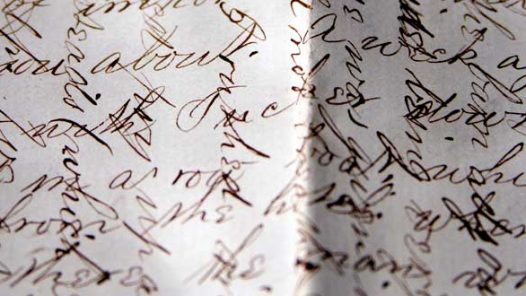We asked for your thoughts about whether cursive writing should be taught in schools — and many of you replied with a resounding “Yes!” You said cursive helps develop fine motor skills, improves mental focus, and lets you read old...
Kinbank is a new database that illustrates the global diversity of family terms. English, for example, specifies sibling relationships with just one of two terms: sister or brother. But most other languages have even more specific terms. In...
Anastasia in Marquette, Michigan, is reading a lot of Russian literature from the late 18th and early 19th century, and keeps getting confused by naming conventions in that language. That naming system is often a challenge for non-Russian speakers...
Gossip goes by many names: the poop, the scoop, the lowdown, the dope, the scuttlebutt, the 411, the grapes, the gore, and hot tea. Plus, John Donne’s love poems are among the greatest in the English language, even as they’re famously...
Stacy from Marquette, Michigan, says her German-born grandfather would warn that she was going to get a putsch or potch, meaning a “a gentle slap” on her bottom, if she misbehaved. The German verb Patsch means “slap.” The...
A librarian opens a book and finds a mysterious invitation scribbled on the back of a business card. Another discovers a child’s letter to the Tooth Fairy, tucked into a book decades ago. What stories are left untold by these forgotten...







